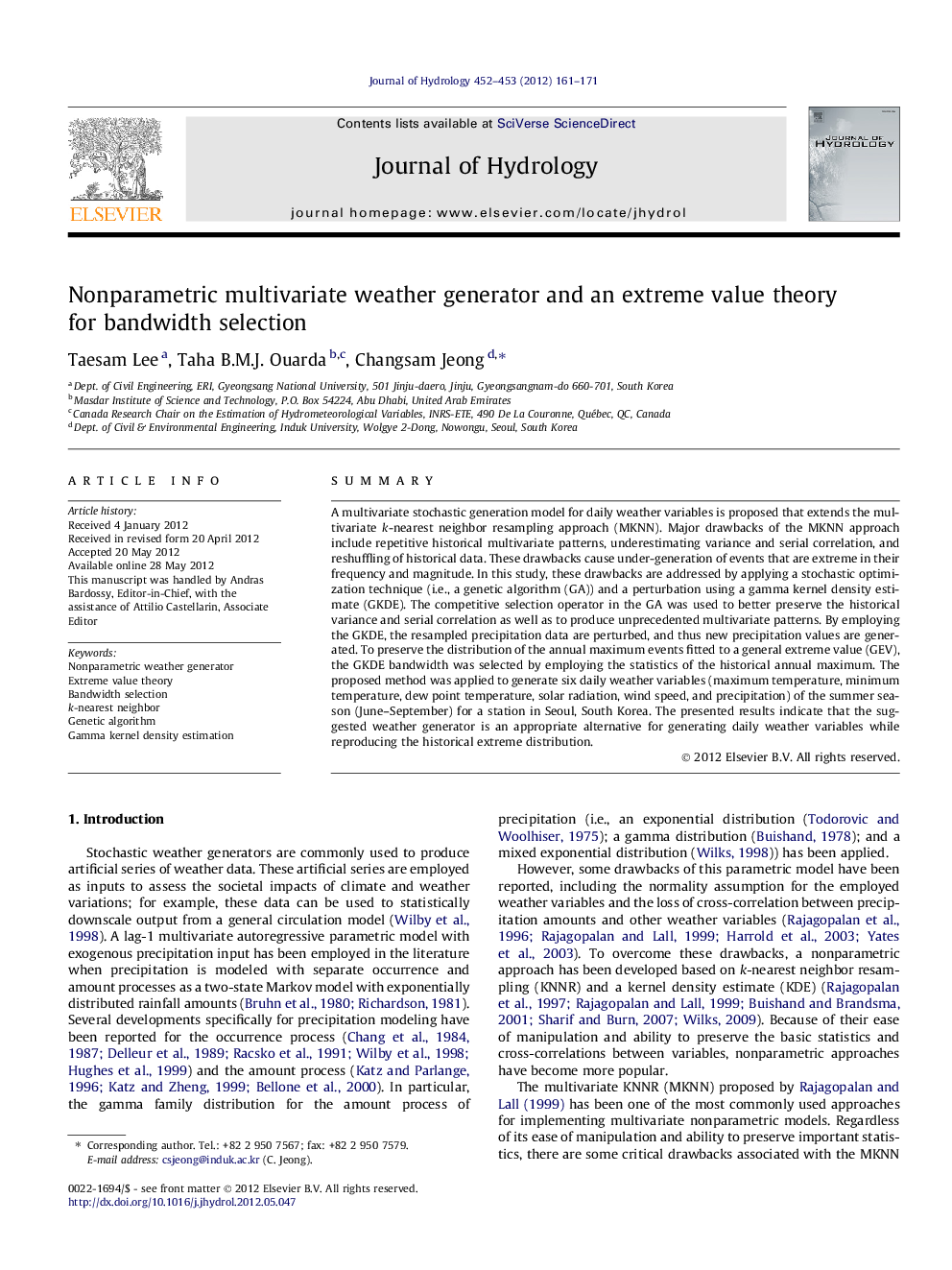| Article ID | Journal | Published Year | Pages | File Type |
|---|---|---|---|---|
| 6413984 | Journal of Hydrology | 2012 | 11 Pages |
SummaryA multivariate stochastic generation model for daily weather variables is proposed that extends the multivariate k-nearest neighbor resampling approach (MKNN). Major drawbacks of the MKNN approach include repetitive historical multivariate patterns, underestimating variance and serial correlation, and reshuffling of historical data. These drawbacks cause under-generation of events that are extreme in their frequency and magnitude. In this study, these drawbacks are addressed by applying a stochastic optimization technique (i.e., a genetic algorithm (GA)) and a perturbation using a gamma kernel density estimate (GKDE). The competitive selection operator in the GA was used to better preserve the historical variance and serial correlation as well as to produce unprecedented multivariate patterns. By employing the GKDE, the resampled precipitation data are perturbed, and thus new precipitation values are generated. To preserve the distribution of the annual maximum events fitted to a general extreme value (GEV), the GKDE bandwidth was selected by employing the statistics of the historical annual maximum. The proposed method was applied to generate six daily weather variables (maximum temperature, minimum temperature, dew point temperature, solar radiation, wind speed, and precipitation) of the summer season (June-September) for a station in Seoul, South Korea. The presented results indicate that the suggested weather generator is an appropriate alternative for generating daily weather variables while reproducing the historical extreme distribution.
